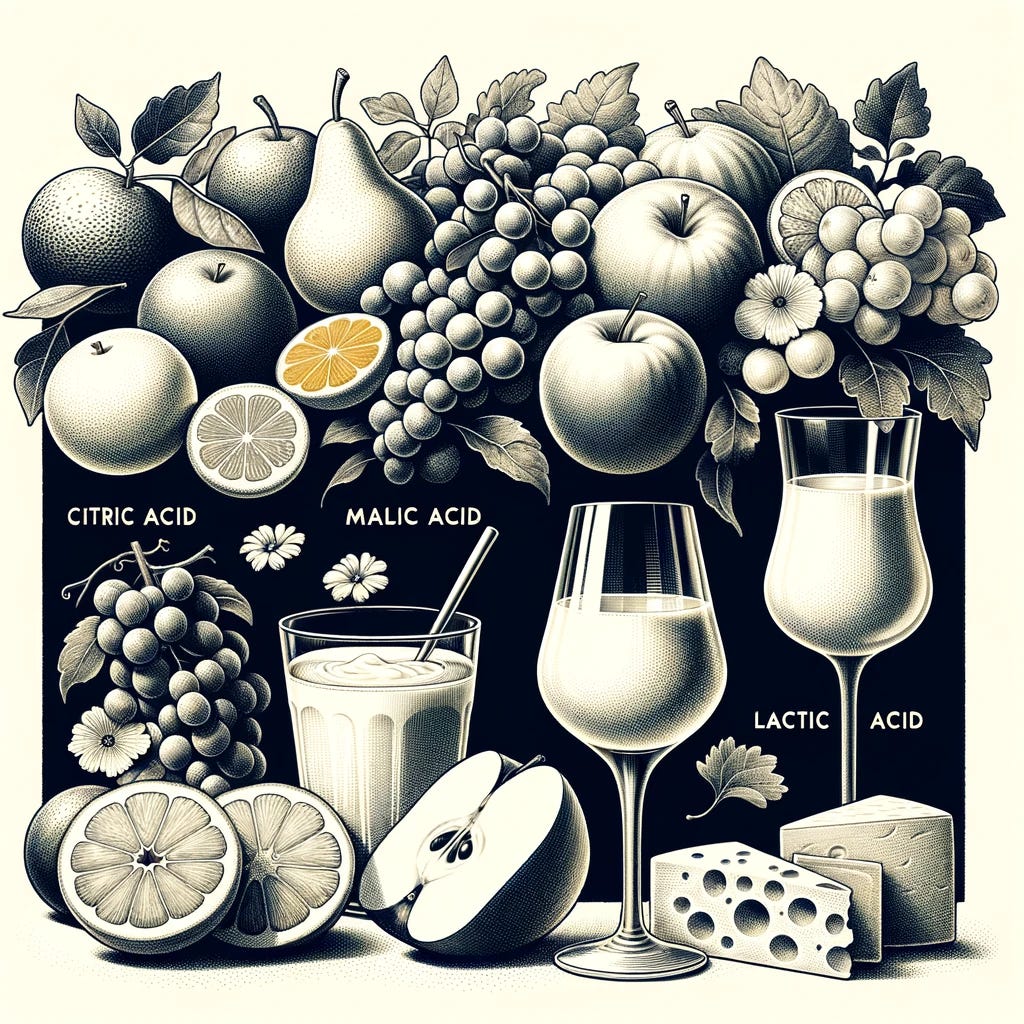Acids in wine
Sent in by Marcus Bell
I've been pondering the roles of acid in wine. Can Dr. Winestain expand on what the main different acids are in wine and why they are important?
Dr. Winestain: Marcus Bell! I have not heard from you since it all went wrong in Bulgaria in 1998!
What a great question that has been scraping your mind… acid in wine is like the director of an orchestra, ensuring every note hits the right pitch and harmony. It's what gives your wine that zest, balances sweetness and keeps you coming back for another sip. Without it, wine would be as flat as a jazz band without a saxophone player.
In the grand theatre of wine, acids play the lead role in keeping the narrative lively and engaging. Without further ado, let's meet our main succulent cast:
Tartaric Acid: The leading star of our show, tartaric acid is the backbone of wine's acidity, making it as crucial as a bassline in a rock anthem. Found in grapes, it's what gives wine that crisp, fresh quality, akin to biting into a Granny Smith apple.
Malic Acid: This player is all about the green, tart taste, reminiscent of biting into a freshly picked green apple. It's the reason why some wines have that mouth-watering quality. However, like a shy performer, malic acid can take a backseat through malolactic fermentation, transforming into the smoother, creamier lactic acid, much like turning from a heavy metal rocker into a smooth jazz crooner. Think Slayer to Sinatra.
Lactic Acid: The result of malolactic fermentation, although it is more of a conversion than fermentation. Lactic acid is the mellow fellow, bringing softness and body to the wine. It's like the difference between a rough sea and a calm lake. Wines that undergo this process swap their tart edge for a rounder, creamier vibe, akin to swapping stilettos for slippers.
Citric Acid: More of a supporting character, citric acid pops up now and then, adding a dash of citrusy freshness. It's like the sparkle in the eye of an old friend, unexpected but always welcome.
Acetic Acid: Now, here's the villain of our story, in high doses at least. Acetic acid is vinegar's father, and while a hint can add complexity, too much and you're dining with the enemy. It's the uninvited guest who crashes the party, turning revelry into regret with ‘cutting jokes.’
Why are they important, you ask? Together, these acids balance sweetness, add freshness, enhance aroma, and contribute to the wine's overall structure.
They're the unsung heroes, ensuring each sip is as memorable as a night in Amsterdam. Without them, it would be flat as a pancake on Shrove Tuesday.


